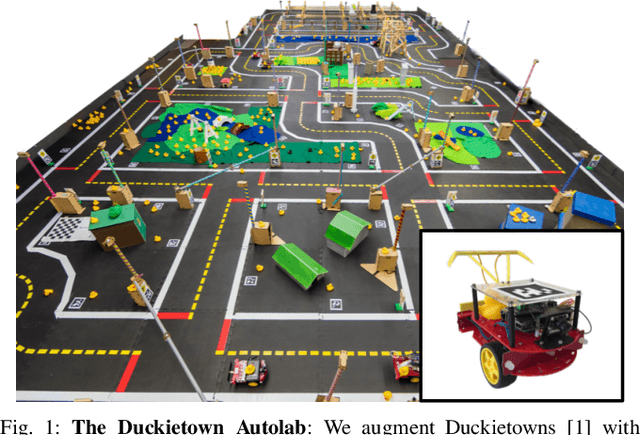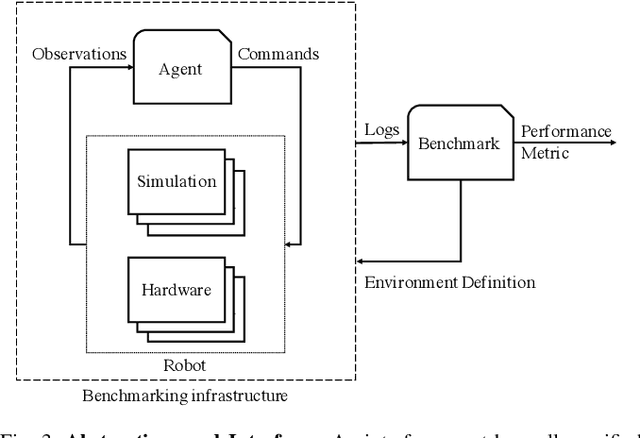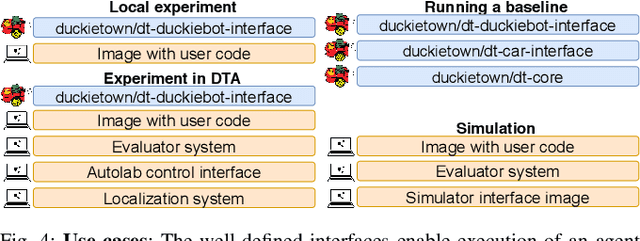Rohit Suri
Integrated Benchmarking and Design for Reproducible and Accessible Evaluation of Robotic Agents
Sep 09, 2020



Abstract:As robotics matures and increases in complexity, it is more necessary than ever that robot autonomy research be reproducible. Compared to other sciences, there are specific challenges to benchmarking autonomy, such as the complexity of the software stacks, the variability of the hardware and the reliance on data-driven techniques, amongst others. In this paper, we describe a new concept for reproducible robotics research that integrates development and benchmarking, so that reproducibility is obtained "by design" from the beginning of the research/development processes. We first provide the overall conceptual objectives to achieve this goal and then a concrete instance that we have built: the DUCKIENet. One of the central components of this setup is the Duckietown Autolab, a remotely accessible standardized setup that is itself also relatively low-cost and reproducible. When evaluating agents, careful definition of interfaces allows users to choose among local versus remote evaluation using simulation, logs, or remote automated hardware setups. We validate the system by analyzing the repeatability of experiments conducted using the infrastructure and show that there is low variance across different robot hardware and across different remote labs.
Learning Camera Miscalibration Detection
May 24, 2020



Abstract:Self-diagnosis and self-repair are some of the key challenges in deploying robotic platforms for long-term real-world applications. One of the issues that can occur to a robot is miscalibration of its sensors due to aging, environmental transients, or external disturbances. Precise calibration lies at the core of a variety of applications, due to the need to accurately perceive the world. However, while a lot of work has focused on calibrating the sensors, not much has been done towards identifying when a sensor needs to be recalibrated. This paper focuses on a data-driven approach to learn the detection of miscalibration in vision sensors, specifically RGB cameras. Our contributions include a proposed miscalibration metric for RGB cameras and a novel semi-synthetic dataset generation pipeline based on this metric. Additionally, by training a deep convolutional neural network, we demonstrate the effectiveness of our pipeline to identify whether a recalibration of the camera's intrinsic parameters is required or not. The code is available at http://github.com/ethz-asl/camera_miscalib_detection.
 Add to Chrome
Add to Chrome Add to Firefox
Add to Firefox Add to Edge
Add to Edge